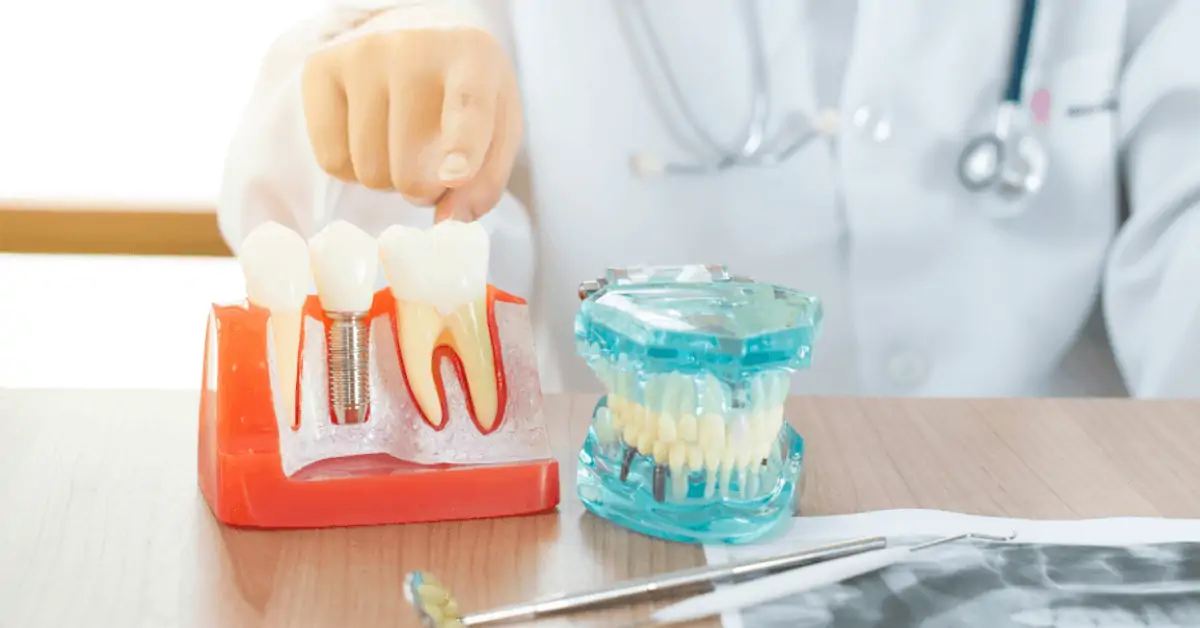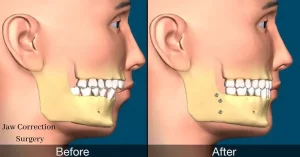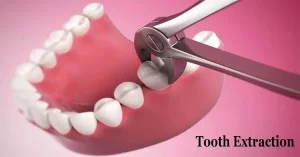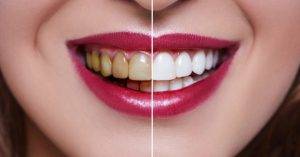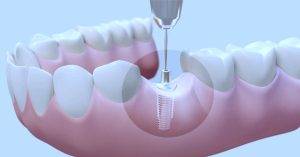A dental implant is used to support one or more false teeth. It is a titanium screw that can replace the root of a tooth when it falls. Just like a tooth root, it is placed into the jawbone.
Implants are a safe, well-established treatment. It’s probably true to say that implants, much like natural teeth, will last for as long as you care for them.
How well you look after your implants – and whether you go for your regular maintenance appointments – will have the biggest impact on how long they will last.
If you don’t look after your implants they will develop a coating similar to what you get on neglected natural teeth. Left untreated, this can lead to gum infection, bleeding, soreness, and general discomfort. You could get all these problems with natural teeth.
If your implants are well looked after, and if the bone they are fitted to is strong and healthy, you can expect them to last for many years or a lifetime.
Yes. You can have any number of teeth replaced with implants – from one single tooth to a complete set.
It depends on the condition of the bone in your jaw. Your dentist will arrange for a number of special tests to find out the amount of bone still there. If there is not enough, or if it isn’t healthy enough, it may not be possible to place implants without grafting bone into the area first but grafting can also be done easily by an oral surgeon.
Placing an implant is often easier than taking a tooth out and is usually done using a simple local anesthetic. You will not feel any pain at the time but, just like after an extraction, you may feel some discomfort during the week after the surgery.
Sometimes your dentist might give you a sedative if you are very nervous or if the case is a complicated one. General anesthetics are rarely used for implants and are generally only used for very complicated cases.
Your dental team will be able to give you a rough timetable before the treatment starts.
Some false teeth can now even be fitted at the same time as the implants (these are called ‘immediate implants’). Check with your dental specialist to see whether these are suitable for you. Usually, the false teeth are fitted 3 to 4 months after the implants are put in. Sometimes treatment takes longer and your dental team will be able to talk to you about your treatment time.
Your dental team will give you instructions on how to look after your implant. They may give you some painkillers after the surgery – or make sure you have some at home – to take over the next few days if you need them.
After your implants have been placed, the bone in your jaw needs to grow onto them and fuse them. This usually takes a few months normally 3-4 months. Sometimes the implants may be stable enough when they are placed for the false teeth to be fitted sooner than this.
If you are having one, two, or three teeth replaced, you may have a temporary denture in the meantime. If you already have full dentures, you can keep wearing these while your implants are healing. Your dentures will need altering, to fit properly after the surgery, and a ‘healing cap’ will usually be placed onto the implant site to protect it.
No. But aftercare is important if you are going to have a long-lasting, successful implant. Your dental team should give you detailed advice on how to look after your implants. Cleaning around the teeth attached to the implants is no more difficult than cleaning natural teeth. However, there may be areas that are difficult to reach and you’ll be shown how to clean them. So be regular check-ups with your implantologist.
Far far away, behind the word mountains, far from the countries Vokalia and Consonantia, there live the blind texts. Separated they live in Bookmarksgrove right at the coast
Yes, if you don’t care for them well enough. If you keep them clean and have them regularly checked by your dental team you should not have any problems. Smoking also affects the health of implants. So, if you smoke, you may need to look after your implants more carefully. Some dentists will not place dental implants in people who are smokers.
Most teeth attached to implants can only be fitted and removed by the dentist. However, if you have removable dentures attached to the implants, you’ll be able to take them out for cleaning.
Most implants look exactly like natural teeth.
If you have a single tooth missing, you will need an implant to support it. If you have a number of teeth missing, and these are next to each other, you could still have one implant for each tooth. Or you may find that, if you have two or more implants, they may be able to support more than one tooth each. Your dentist will talk to you about the best option for you.
This happens very rarely. If the implant becomes loose during the healing period, or just after, it is easily removed and your jaw will heal in the normal way. Once your jaw has healed, another implant can be placed there.
Implants are not normally available on the Insurance. Implants are available privately. However, in many situations, the cost of the treatment is only a little more than the cost of more conventional private dental treatment with crowns and bridges. Over the longer term, implants are usually a more cost-effective and satisfactory option.
There are other advantages to implants, too. If you have an implant to replace a single tooth, there is no need to cut down the teeth either side of it. If you had a bridge, your dentist would need to do this and fit crowns to these teeth to support the bridge.
Normal dentures often mean that your eating and drinking are affected because the dentures may move about. But teeth attached to an implant don’t cause this problem, because they are anchored to the bone more firmly than natural teeth.
Talk to your dentist. They may already carry out some or all of this type of treatment and will give you the advice you need. Or they may refer you to an experienced ‘implantologist’ for assessment and treatment.
Remember to ask:
Exactly what treatment is proposed.
What experience the dentist has in this work.
The total cost of the treatment depends upon different brands in implants as well.
What the alternatives are.
Make sure you get a treatment plan, along with an estimate, and ask if a guarantee is included for your treatment.
If you are unhappy with any of the answers you get, then do ask for a second opinion. You will be spending a lot of time, effort, and money, so you must be sure that you know what you are getting at the end of the treatment.
